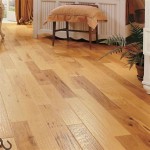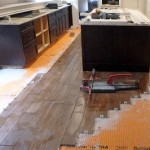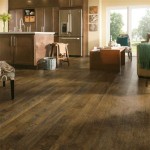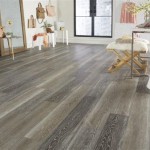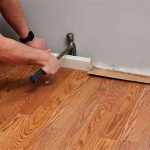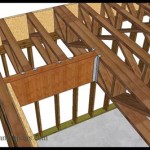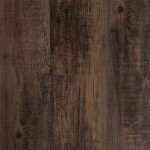Bamboo Flooring Installation Instructions: A Comprehensive Guide
Bamboo flooring has become increasingly popular due to its durability, sustainability, and unique aesthetic appeal. However, proper installation is crucial to ensure its longevity and performance. This comprehensive guide provides detailed instructions on how to successfully install bamboo flooring in your home or commercial space.
1. Preparation
Before you begin the installation process, it's essential to prepare your subfloor. The subfloor should be level, smooth, and free of any imperfections or debris. This can be achieved by using a self-leveling compound or plywood underlayment. Additionally, ensure that the subfloor meets the moisture content requirements specified by the bamboo flooring manufacturer.
2. Moisture Barrier
To prevent moisture from penetrating the subfloor and damaging your bamboo flooring, it's crucial to install a moisture barrier. This can be done by laying down a polyethylene sheeting with overlapping seams and sealing them with tape.
3. Underlayment
An underlayment provides a cushioning layer between the subfloor and the bamboo flooring. It helps to reduce sound transmission, improve impact resistance, and provide a more comfortable walking surface. Choose an underlayment that is compatible with your bamboo flooring and the subfloor conditions.
4. Expansion Gaps
Bamboo flooring expands and contracts with changes in temperature and humidity. To prevent buckling or warping, it's important to leave expansion gaps around the perimeter of the room and between walls and obstacles. These gaps should be 1/4 to 1/2 inch wide and can be covered with baseboards or quarter-rounds.
5. Installation Method
There are two common installation methods for bamboo flooring: floating and gluedown. Floating installations involve locking the planks together without securing them to the subfloor. Gluedown installations involve adhering the planks to the subfloor using adhesive. The choice of installation method depends on the type of bamboo flooring you have, the subfloor conditions, and the desired level of sound insulation.
6. Planking Layout
Before starting the installation, it's important to plan the layout of your planks. Determine the direction in which you want to run the planks, consider the location of doorways and obstacles, and minimize waste. You may want to create a dry fit layout to visualize the final result before securing the planks.
7. Cutting and Fitting
Use a circular saw or miter saw to cut the planks to size and shape. For cutting around obstacles, such as door frames or pipes, it's best to use a jigsaw. Be sure to wear proper safety gear and follow the manufacturer's instructions for safe handling of power tools.
8. Joining Planks
For floating installations, the planks are typically joined by interlocking the tongue and groove edges. For gluedown installations, apply adhesive to the subfloor and press the planks into place, ensuring proper alignment and spacing. Use a tapping block and hammer to gently tap the planks together.
9. Finishing Touches
Once the bamboo flooring is installed, you can add finishing touches to enhance its appearance and protect it from wear and tear. Install baseboards or quarter-rounds to cover the expansion gaps and provide a clean transition to walls. Apply a clear finish, such as polyurethane or wax, to protect the flooring from moisture and scratches.
10. Maintenance
To keep your bamboo flooring in pristine condition, regular maintenance is essential. Sweep or vacuum regularly to remove dirt and debris. Mop occasionally with a damp mop and a gentle cleaning solution. Avoid using harsh chemicals or abrasive cleaners, as they can damage the finish. If needed, you can refinish the flooring to restore its original appearance.
By following these detailed instructions, you can successfully install bamboo flooring in your home or commercial space, creating a durable, sustainable, and visually appealing floor that will last for years to come.

Bamboo Family Flooring Installation Guides

How To Install Bamboo Flooring Floated Diy Method

Sinohcon Bamboo Flooring Installation Instructions

Sinohcon Bamboo Flooring Installation Instructions

Solid Bamboo Wood Tongue And Groove Flooring Installation Manual

Glue Down Installation Bamboo Hardwood Floor Over Concrete Slab Wood Sub

Installation Guide Lumber Liquidators

Sinohcon Bamboo Flooring Installation Instructions

Detailed Guide Installation Instructions For Bamboo Flooring

8 Most Common Errors On Bamboo Flooring Installations Wood Floors Installing
Related Posts

